
'Marvel's M.O.D.O.K.' Review
Plus: Ethical standards in film writing are a dumpster fire!
All the hot Marvel action is on Disney+ right now: WandaVision and The Falcon and the Winter Soldier and, debuting this week, Loki are the current source of entertainment for those who have been deprived of Marvel Cinematic Universe content since Spider-Man: Far From Home debuted two years ago in theaters.
Loki is, at least through one episode, very similar to its D+ predecessors: slickly competent, thoroughly enmeshed in the world of its forebears, and amusing without being particularly funny. Following the god of mischief’s efforts to flummox the Time Variance Authority—a bureaucratic nightmare that makes the DMV look like a Sandals—the show looks like it will be perfectly acceptable entertainment doled out a week at a time. The best thing about Loki is that it will bring Owen Wilson back into our lives as the TVA bureaucrat working with Loki to fix the universe; everyone should have as much Owen Wilson in their life as possible.
Were the TVA and the multiverse real, there’d be another timeline, another universe, where Loki and the rest of the self-contained competence of the MCU’s empire aren’t the be-all and end-all of Marvel products. In this other timeline, you have a cavalcade of networks producing a plethora of shows like Marvel’s M.O.D.O.K., a stop-motion animated sitcom about the majorly brainy minor villain and his home troubles.
Voiced by Patton Oswalt, M.O.D.O.K. (Mental Organism Designed Only for Killing) is the founder of the villainous weapons and technology manufacturer AIM (think: Evil Stark Industries). More importantly, though, he’s a father and a husband, and his marriage is cracking under the strain of his villainy. His wife Jodie (Aimee Garcia) is a budding influencer, his son Lou (Ben Schwartz) is a manic ADD case, and his daughter Melissa (Melissa Fumero) is a nascent micro-villain in her own right, a Mean Girl in the making. Meanwhile, at AIM, M.O.D.O.K. has lost control of his business by selling it to a Google-like corporation run by tech-bro Austin (Beck Bennett).
Marvel’s M.O.D.O.K. owes its aesthetic and its comedic sensibility to Robot Chicken, the Adult Swim series spearheaded by Seth Green that has run for 10 seasons between 2005 and 2020. Brought to life by Green’s animation studio, M.O.D.O.K. and his minions resemble toys being played with; there’s a charmingly clunky nature to the whole endeavor. And the comedy apes the vaguely absurdist, Dadaist sensibility cultivated by the creators on, and fans of, Adult Swim: This is the sort of show where evil scientist Monica Rappacini (Wendi McLendon-Covey) can create a crude gelatin double of M.O.D.O.K. and have it spout empty business catchphrases and no one on the show notices anything’s wrong for a couple of hours, or where M.O.D.O.K. can travel back in time to not only watch a Third Eye Blind concert but also poison Austin as a child with strawberry jam.
(As an aside, there’s an interesting piece to be written about the evolution of Adult Swim and the way its brand of humor has filtered down into the mainstream of comedy; you could argue that the weirdness of the Internet, from the proliferation of memes to the more absurd corners of Twitter like that occupied by Dril, owes something to the absolutely random humor of the Adult Swim block of programming. Indeed, there’s a reason Dril wound up with a show on Adult Swim. Adult Swim is also just piercingly smart even when it’s entertainingly dumb: Frisky Dingo’s second season remains a spot-on parody of electoral dysfunction—down to the unchanging nature of the issues, like global warming and immigration and anti-Semitism—that’s as relevant today as it was in 2007, before concluding with a half-nude man riding a giant, hideous ant-monster-baby in an effort to reclaim a device designed to fly the planet into the sun. (That last bit makes perfect sense in context, trust me; just do yourself a favor and watch the series on HBO Max.))
I don’t know that this aesthetic entirely works for Marvel’s M.O.D.O.K.; one of the joys of Robot Chicken is that it’s half as long as a standard sitcom, the writers jamming as many gags into 11 minutes or so of programming as they can. That rapid-fire, plot-free approach is better suited to the zany ideal of Robot Chicken’s humor than to M.O.D.O.K.’s silly-but-serious examination of a family in crisis. Still, it’s interestingly different, which feels like a win unto itself: The MCU is predicated on proficient sameness, and that very proficiency lends itself to a sort of mediocrity-plus. Working outside that matrix of mediocrity creates a more uneven artistic product, in the end, but also one that’s more likely to be memorable.
And what could be more memorable than watching a man with a giant head in a floating chair stuck at a corporate retreat try to figure out how to defeat a team of hard-partying turtle-like aliens that screw their targets to death? (This is a thing that happens on the show.)
If you want to share something a little weird with your friends, forward them this newsletter. Or hit the share button below. It’ll certainly be memorable.
And if you want more talk about M.O.D.O.K., JVL and I discussed the show on the Sub-Beacon this week.
It’s About Ethics in Film Writing
Speaking of Loki, you know who liked it? Germain Lussier! How do I know he liked it? Because he tweeted about all the crap he got from the studio!
This is a small thing and probably of little interest to you, so I apologize in advance for wasting your time here. But it drives me totally bananas that people who write about movies for a living are allowed to just accept giant boxes of free shit from the studios that make and rely on coverage from these writers for promotion.
Now, look: Film writers and freebies have a long and tortured relationship. Like, did you know that it is not unheard of for critics—actual critics, whose reviews are counted on critic aggregator Rotten Tomatoes, the fresh/rotten sign of which can be worth untold millions to the studios who make the movies getting the fresh/rotten signs—to accept flights and hotel accommodations to visit sets and participate in junkets and just see the movies? There’s one particularly egregious episode that has always stuck in my mind: an all-expenses-paid trip to Bora Bora* for dozens of journalists that wound up netting the movie all manner of “earned media” in newspapers and magazines and on TV.
There is no other wing of journalism in which this would be remotely acceptable! If you found out that senators were sending New York Times reporters to Cancun for a weekend and then, in return, the reporters wrote about how great the senators were, you’d throw a fit! Rightly so. Because that would be clearly and obviously corrupt.
Look, Roger Ebert said it best years ago:
The critic should ideally never accept round-trip first-class air transportation, a luxury hotel room, a limo to a screening and a buffet of chilled shrimp and cute little hamburgers in preparation for viewing a movie. If you go, your employer should pay for the trip.
I would go further and say that critics shouldn’t accept boxes of MCU swag from Disney or Fast and Furious swag from Universal or Batman swag from Warner Bros. And if you get these things, you should throw them in the trash instead of tweeting about how great they are and how much you love the #content they’re trying to bribe you about. (Full disclosure: I did just that when I received a bag of Nomadland stuff during the last awards season.)
Why?
Because you look like an untrustworthy shill when you accept all this free gear.
How are any of us supposed to know when you modulate your coverage to avoid having the spigot of free shit shut off? How are any of us supposed to believe you’re anything other than a hack who considers himself an arm of the studio’s promotional team? How are we supposed to trust your reviews? Or anything else you do?
*Important correction: the tropical junket mentioned above was to Bora Bora, not Hawaii. Sonny deeply regrets the error.
Assigned Viewing: Streets of Fire (Netflix)
Walter Hill’s “Rock & Roll Fable,” Streets of Fire, is back on Netflix and well worth checking out. It’s gloriously nuts and amusingly anachronistic, combining the musical styles beloved by the MTV set at whom this 1984 film was aimed with fashion designs and hair styles more suited for the 1950s doowop set. Plus, it features Willem Dafoe getting into a sledgehammer fight and wearing leather overalls.
That Hill made this movie and The Warriors—another zanily costumed fever dream of a film about a gang trying to get from one end of New York City to the other before being murdered by rivals—shortly after making stylish-but-relatively-staid movies like Hard Times and The Driver has always struck me as both slightly weird and a glorious reminder of the freedom granted by a studio system that gives folks $10 to $20 million to play with.







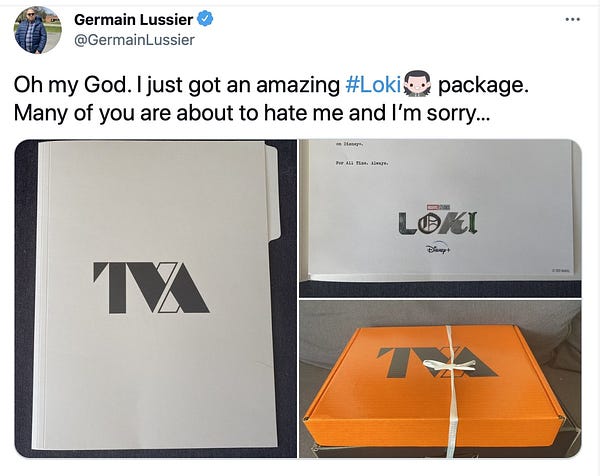
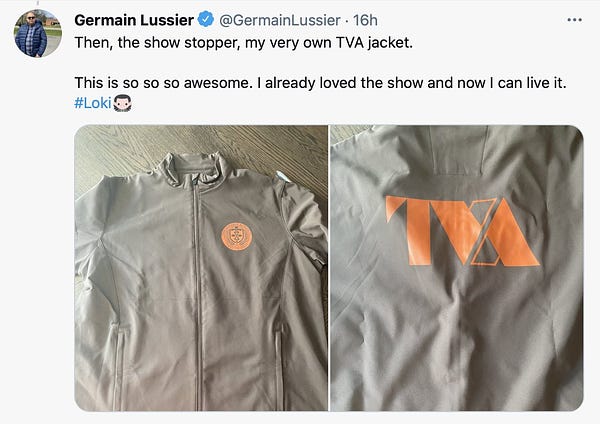
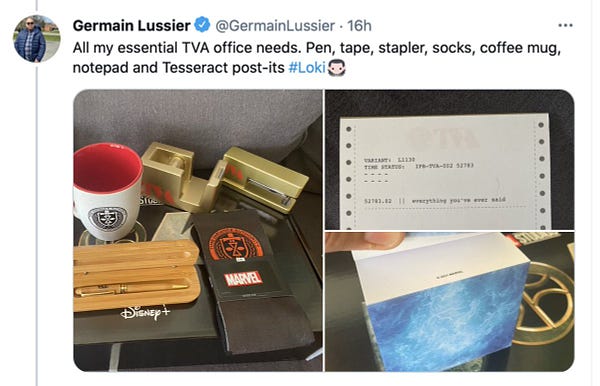
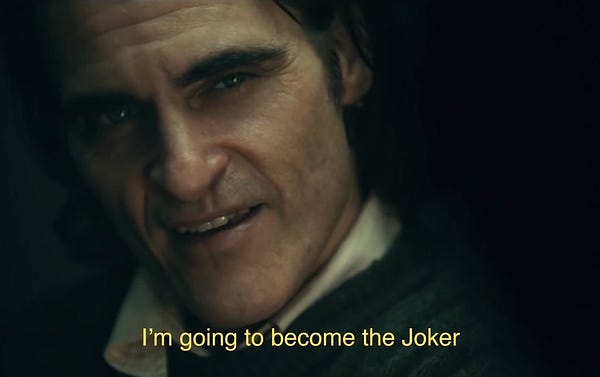
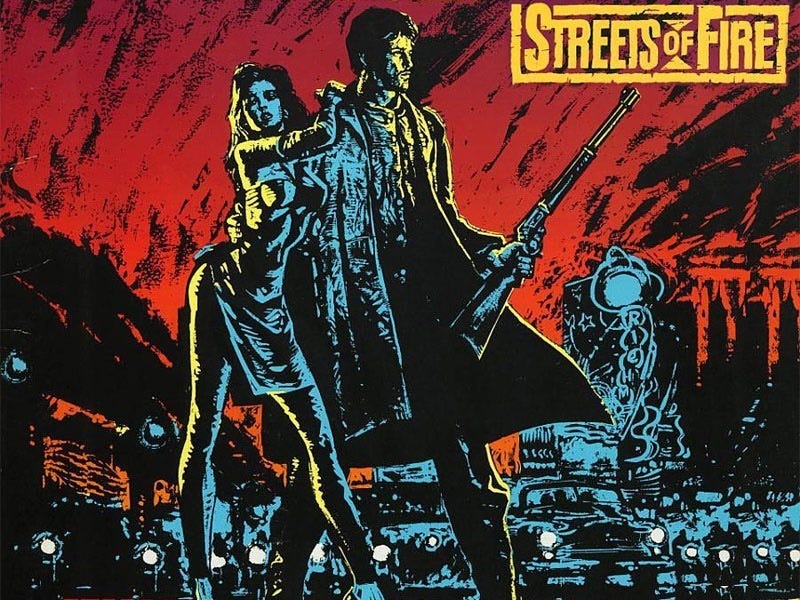






I want to tap out of Loki just to make my Facebook archnemesis unhappy so almost purely out of spite, and that weird critic pseudo-bribery is just making me hate...they probably got another showrunner who doesn't know who Mephisto is. I'm enjoying Sweet Tooth just to spite them.
I love "Streets of Fire" (I was 19 when it came out) and had it on VHS, and now blu-ray. Michael Pare was, well, not /bad/, but not good either. True of every movie I saw him in. Willem Dafoe as the Mad Biker was great. Lots of actors in first or early roles there. Pity it opened on the same weekend as Star Trek 3 and got crushed at the box office.
The soundtrack is pretty good, too, and spun off a top ten hit.